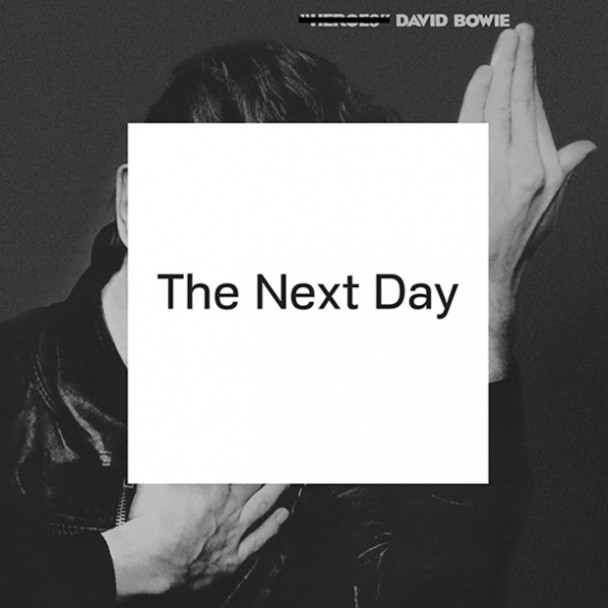Living Legend. This is one of the few phrases that can begin to accurately summarize the man known as David Bowie. Since the early 1970s, Bowie has made some of the most unique music in rock ‘n’ roll. Initially gaining success with the single “Space Oddity,” Bowie separated himself from the herd of testosterone-infused acts of the day, vying for a more artistic approach, and creating an alternate identity under the moniker “Ziggy Stardust.” Through many ups and downs, Bowie has continued to reinvent himself time and time again, and, as biographer David Buckley stated, "created perhaps the biggest cult in popular culture."
In January 2013, Bowie confirmed the hopes of fans everywhere that he would be releasing his first proper album in more than a decade, titled “The Next Day,” this month.
Bowie's songwriting and vocals reach a new level
The album opens with a bang with title track “The Next Day.” Though Bowie is 66, he has proven to any critics that he’s still very capable of danceable beats harkening back to his glam rock heyday. Through “Dirty Boys” and “The Stars (Are Out Tonight),” Bowie performs as if he isn’t a day older than the bright-eyed young man prancing around the stage in makeup and red hair he was. Unlike so many aged rockers today, Bowie is still as sharp a songwriter and vocalist as ever. This is not the pitiful sound of an old man pretending he is young again, this is the sound of a man with a youthful soul that still has words for the world to hear. He seems to have reached a new level in his lyricism and songwriting.
Bowie slows things down on the track “Where Are We Now,” which was the album’s first single. This track is a harsh contrast to those that precede it, but it provides a necessary element of dynamics in the album. The track relies heavily on piano rather than guitars, separating itself sonically from the other tracks. Bowie’s voice on this song is fragile, but shows no signs of deterioration over the years; it’s simply the voice of a man who’s been a place or two in his life, and it comes across as very honest and sincere.
With the tracks “I’d Rather Be High” and “Boss Of Me,” Bowie seems hell-bent on proving that the spirit of true rock ‘n’ roll is not dead. The former serves as a sort of modern anti-war protest song in the spirit of anti-Vietnam tunes of the ‘60s and ‘70s. The latter harkens back to the feel-good rock of the ‘70s, back when a song sounded best from the speakers of your El Camino with a beautiful girl in the passenger seat.
Awakening rock 'n' roll again
“(You Will) Set The World On Fire” is a straight-up rocker, kicking off with a guitar riff the likes of which hasn’t been heard in 30 years. Bowie paints a vivid scene of Greenwich Village in New York, in clubs where icons such as Pete Seeger and Bob Dylan crooned their impassioned folk protests.
This album is the one the world needs: an album filled with songs of love and death and passion. A beacon in the darkness of the world around it, this album is a reviving shock to the heart of rock ‘n’ roll. This release proves once and for all what many have known for years: rock ‘n’ roll is not dead. Bowie seems to have awakened from a 30-year slumber as if all of his post-‘80s albums never happened, and this is among his greatest offerings. This record is sure to be cherished for years to come. It is an instant classic in a time overrun with pop singers auto-tuning their sorry excuses for voices and faux indie rockers singing such disgustingly cliché lines such as “I’m never changing who I am!” Though Bowie is the age of the average grandparent, his youthful soul is just as creative, passionate and energized as it was at the dawn of his career, and he shows no signs of slowing down.







